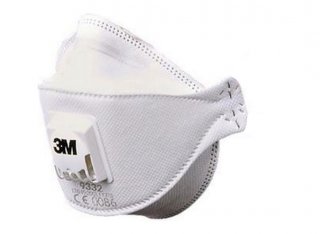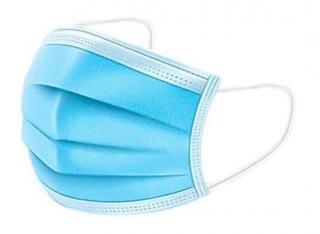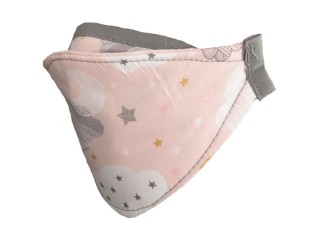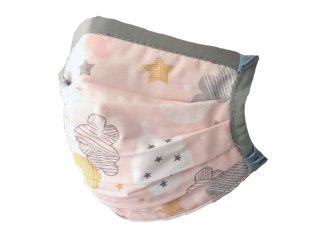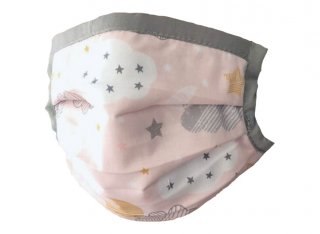

Covid-19 research
We are drawing on our extensive experience in air quality to support the fight against Covid-19. In collaboration with partners around the world, we are part of the international effort making a case for the recognition of airborne transmission.
Related publications
- Woodward, H., Fan, S., Bhagat, R.K., Dadonau, M., Wykes, M.D., Martin, E., Hama, S., Tiwari, A., Dalziel, S.B., Jones, R.L., Kumar, P., Linden, P.F. 2021. Air Flow Experiments on a Train Carriage—Towards Understanding the Risk of Airborne Transmission. Atmosphere 12, 1267.
- Kumar, P., Omidvarborna, H., Tiwari, A., Morawska, L., 2021. The nexus between in-car aerosol concentrations, ventilation and the risk of respiratory infection. Environment International 157, 106814.
- Sharma, A., Omidvarborna, H., Kumar, P., 2021. Efficacy of facemasks in mitigating respiratory exposure to submicron aerosols. Journal of Hazardous Materials 126783.
- Feng, Z., Cao, S.J., Wang, J., Kumar, P., Haghighat, F., 2021. Indoor airborne disinfection with electrostatic disinfector (ESD): Numerical simulations of ESD performance and reduction of computing time. Building and Environment 200, 107956.
- Ganguly, R., Sharma, D., Kumar, P., 2021. Short-term impacts of air pollutants in three megacities of India during COVID-19 lockdown. Environment, Development and Sustainability.
- Burridge, H. C., Bhagat, R. K., Stettler, M. E. J., Kumar, P., De Mel, I., Demis, P., Hart, A., Johnson-Llambias, Y, King, M. F., Klymenko, O., McMillan, A., Morawiecki, P., Pennington, T., Short, M., Sykes, D., Trinh, P. H., Wilson, S. K., Wong, C., Wragg, H., Wykes, M. S. D., Iddon, C., Woods, A. W., Mingotti, N., Bhamidipati, N., Woodward, H., Beggs, C., Davies, H., Fitzgerald, S., Pain, C., Linden, P. F., 2021. The ventilation of buildings and other mitigating measures for COVID-19: a focus on wintertime. Proceedings of the Royal Society A 477, 20200855.
- Torkmahalleh, M.A., Akhmetvaliyeva, Z., Omran, A.D., Omran, F.D., Kazemitabar, M., Naseri, M., Naseri, M., Sharifi, H., Malekipirbazari, M., Adotey, E.K., Gorjinezhad, S., Eghtesadi, N., Sabanov, S., Alastuey, A., de Fátima Andrade, M., Buonanno, G., Carbone, S., Cárdenas-Fuentes, D.E., Cassee, F.R., Dai, Q., Henríquez, A., Hopke, P.K., Keronen, P., Khwaja, H.A., Kim, J., Kulmala, M., Kumar, P., Kushta, J., Kuula, J., Massagué, J., Mitchell, T., Mooibroek, D., Morawska, L., Niemi, J.V., Ngagine, S.H., Norman, M., Oyama, B., Oyola, P., Öztürk, F., Petäjä, T., Querol, X., Rashidi, Y., Reyes, F., Ross-Jones, M., Salthammer, T., Savvides, C., Stabile, L., Sjöberg, K., Söderlund, K., Raman, R.S., Timonen, H., Umezawa, M., Viana, M., Xie, S., 2021. Global Air Quality and COVID-19 Pandemic: Do We Breathe Cleaner Air? Aerosol and Air Quality Research.
- Kumar, P., Hama, S., Omidvarborna, H., Sharma, A., Sahani, J., Abhijith, K.V., Debele, S.E., Zavala-Reyes, J.C., Barwise, Y., Tiwari, A., 2020. Temporary reduction in fine particulate matter due to ‘anthropogenic emissions switch-off’ during COVID-19 lockdown in Indian cities. Sustainable Cities and Society 62, 102382.
- RAMP guidance document, 2020. The ventilation of buildings and other mitigating measures forCOVID-19: a focus on winter 2020.The Royal Society ‘Rapid Assistance for Modelling the Pandemic (RAMP)’ project, Task 7: Environmental and aerosol transmission, September 30, 2020.
- Sannigrahi, S., Molter, A., Kumar, P., Zhang, Q., Basu, B., Basu, A.S., Pilla, F., 2020. Examining the status of improved air quality due to COVID-19 lockdown and an associated reduction in anthropogenic emissions. medRxiv.
- Sloan Brittain, O., Wood, H., Kumar, P., 2020. Prioritising indoor air quality in building design can mitigate future airborne viral outbreaks. Cities & Health, 1-4.
- Woodward, H., Kumar, P., Linden, P., et al. 2020. Train paper Air flow experiments on a class 802 train carriage (in preparation).
- Kumar, P., Kalaiarasan, G., Porter, A. E., Pinna, A., Kłosowski, M. M., Demokritou, P., Chung, K. F., Pain, C., Arvind, D. K., Arcucci, R., Adcock, I. M., Dilliway, C., 2020. An overview of methods of fine and ultrafine particle collection for physicochemical characterisation and toxicity assessments. Science of the Total Environment 143553.
- Kumar, P., Morawska, L., 2019. Could fighting airborne transmission be the next line of defence against COVID-19 spread?. City and Environment Interactions 4, 100033.
Get in contact
Contact us if you would like further information about our research activities in Covid-19, or are interested in collaborating on these projects.

Professor Prashant Kumar
Co-Director, Institute for Sustainability, Professor and Chair in Air Quality and Health; Founding Director, Global Centre for Clean Air Research (GCARE)
